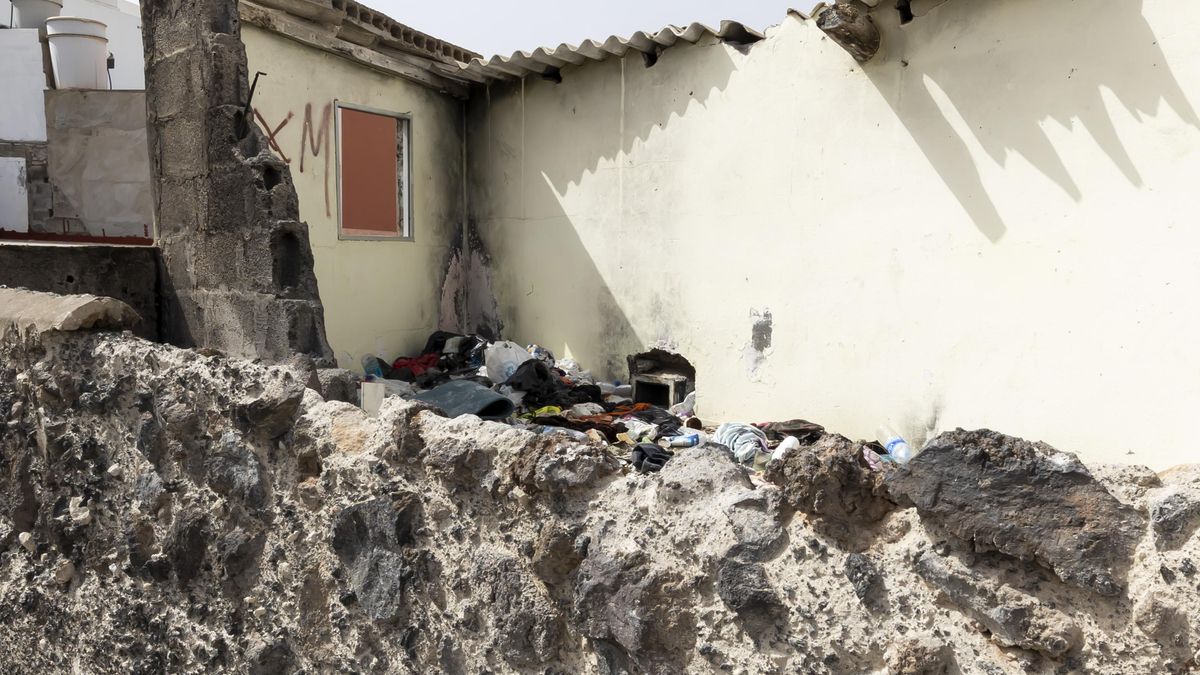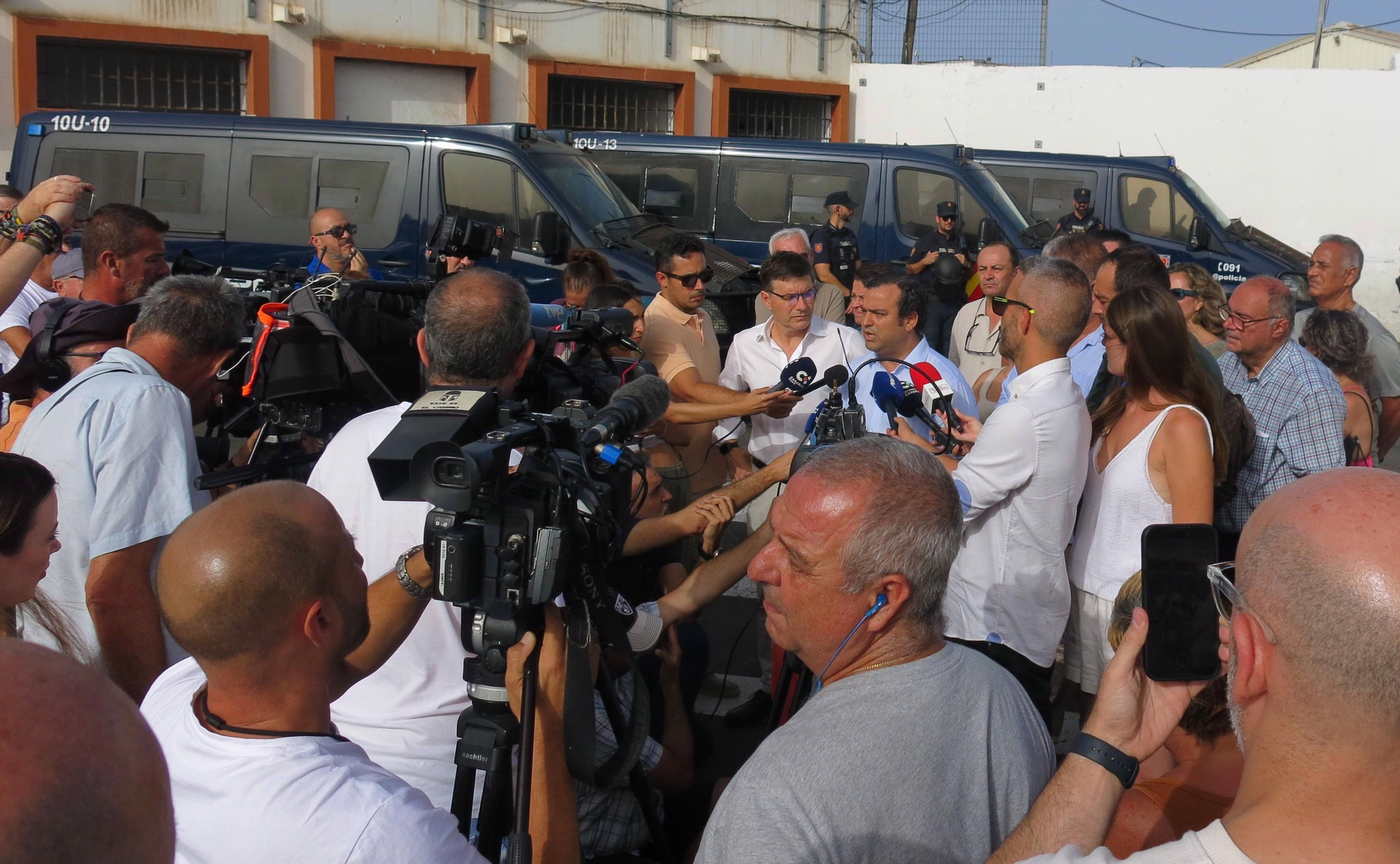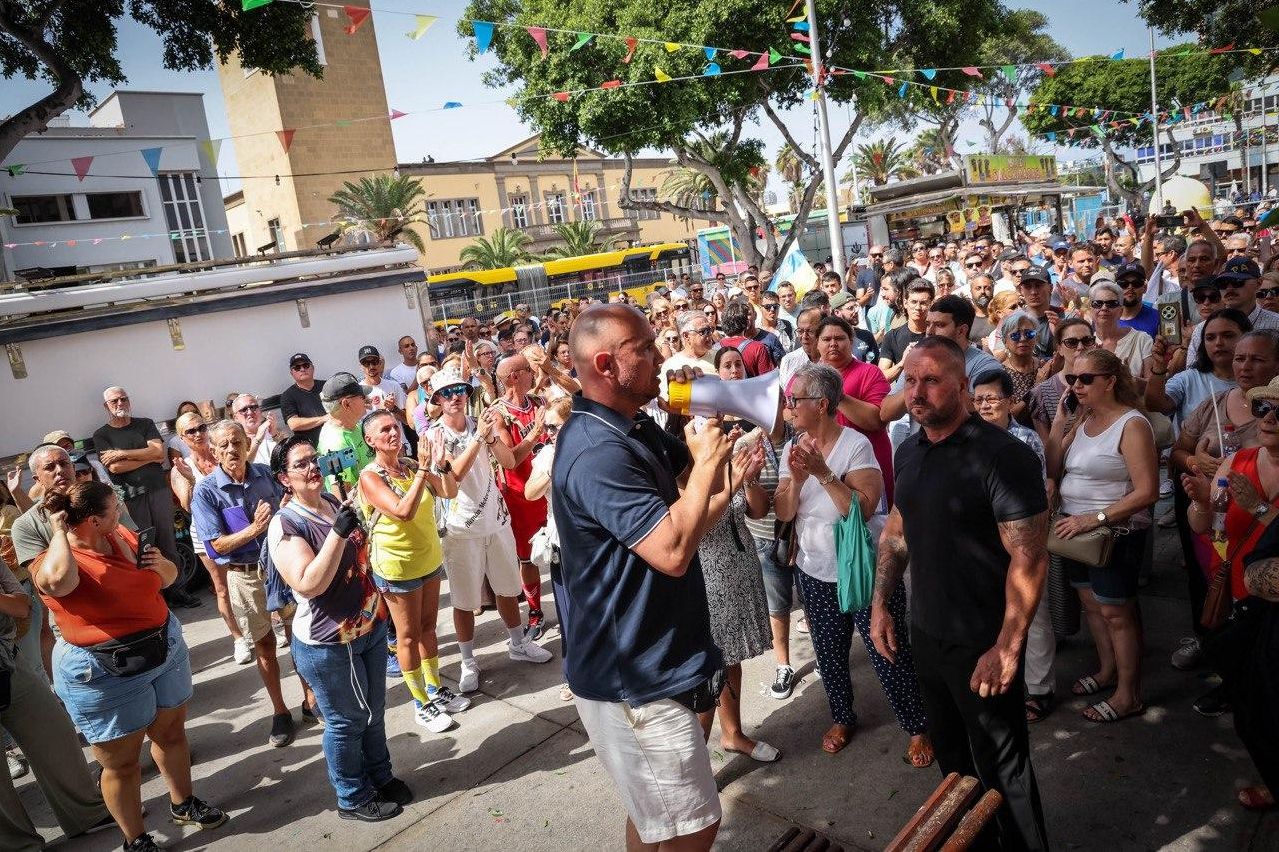In the early hours of 16 July, a 20-year-old Moroccan man was arrested in Gran Canaria as the suspected perpetrator of serious injuries against a minor following a fire in an informal dwelling in La Isleta. Just over 24 hours later, coinciding with a crackdown on migrants in Torre Pacheco (Murcia), Vox seized the opportunity to incite xenophobia on the island and called for a rally against immigration outside a reception centre in the island’s capital. “From Vox, we are very clear. We will stand with the Spanish. We will defend their safety to the last consequences,” stated Alberto Rodríguez, the party’s candidate for the Congress of Deputies in Las Palmas. This Tuesday, the judge granted provisional release to the young man after the victim testified that the fire was accidental and that he attempted to assist her.
The adolescent, under the guardianship of the Government of the Canary Islands, was transported to the Burn Unit in Seville by a medicalised aircraft, with over 50% of her body affected by burns from the fire. Initially, police sources reported that the minor stated she had been assaulted by the young man, which was one of the hypotheses considered. In one of the judge’s orders, it was noted that this was one of the contradictions that needed resolution. In the resolution that agreed the release of the detainee, it was concluded that the victim’s testimony “supports the thesis” maintained from the outset by the National Police’s Homicide Division, referring to medical reports that “relativise” the hypothesis that the victim was doused with flammable liquid. The order also indicated that the victim became trapped in the room, despite the suspect’s attempts to assist her.
“The victim herself has expressly denied such a claim, thereby reinforcing the original police thesis that we are dealing with an accidental fire in which the victim became trapped in the room, despite the suspect’s attempts to help,” stated the magistrate Tomás Martín. Nevertheless, the investigation remains open to determine whether the suspect acted negligently in the fire’s origin.

According to this newspaper, the court’s decision provoked anger from the far-right MEP Jorge Buxadé, who was coincidentally in the Canary Islands during a visit by a delegation of MEPs to Gran Canaria and Tenerife to assess the impact of migration on the islands. Sources from this delegation state that Buxadé was at a meeting with the Public Prosecutor’s Office and the Civil Guard at that time, where he sought to link crime with immigration, even being reprimanded by a representative of the People’s Party. These sources assert that the tension Buxadé attempted to introduce was met with “calm institutions and social entities that work well on the ground and in interesting integration projects.”
From the outset and in the midst of the ongoing investigation, agitators and far-right parties, deniers of gender violence, seized the moment to link immigration with this scourge and with crime. The influencer Rudy Ruymán, repeatedly denounced for hate crimes against migrants, called for another protest against immigration in La Isleta. “A young Canary Islander, a minor and in care, has been set ablaze in La Isleta. One perpetrator: a 20-year-old Moroccan who recently arrived by boat with an expulsion order, living in a squatted flat,” he stated on social media.
The leader of Vox, Santiago Abascal, also took the opportunity to blame the Prime Minister, Pedro Sánchez, for the machismo violence suffered by women in Spain and to make a racist speech against the suspect, who is now free. “Sánchez has not had a single word for the women victims of rape in recent weeks. Nor for the girl burnt alive by a savage recently arrived by boat. He is the main responsible for that horror that is repeating across all the streets of Spain,” he posted on his Facebook account on 28 July.

Meanwhile, the media released headlines highlighting that the young man had only arrived in Lanzarote months ago by boat. “It was very significant how some media approached it, ignoring all established codes that warn against mentioning a person’s cultural background when reporting a crime. By mentioning cultural origin, you are implicating an entire community,” explained researcher José Manuel Álamo. “There was very little information and multiple judgments were made. There was a significant interest in criminalising the entire community, particularly young Moroccan migrant men without family references, who are under immense pressure,” he asserted.
This perspective was echoed by researcher and journalism professor at the University of La Laguna, Rodrigo Fidel. “The narrative is constructed with all the ingredients intended to evoke anger and indignation in the reader. It is an immigrant who assaults a girl, who is ‘ours’, happening in an informal dwelling…,” he illustrates. Furthermore, he criticises the media for highlighting that the young man had an expulsion order, despite that this document is issued to all individuals arriving irregularly in Spain, as though he were “almost a wanted man”.
“This far-right narrative is ‘algorithm + hate’. That is the combination. The chemical principles that are fueling this fire,” he asserts. Once misinformation spreads, it becomes “difficult” to contain. “The denial always comes a posteriori. That’s the harsh reality. The one who strikes first, strikes twice,” states Fidel.
Álamo reminds us that “the association of what was happening here with what was occurring in Torre Pacheco was used politically.” “There was an attempt, with no success, to create a false sense of danger,” adds the cultural diversity and coexistence expert. In this vein, the researcher highlights that it is crucial for administrations to focus narratively on the positive aspects of migration within the local context: “We need professionals in the streets dedicated to working on the complexities of migration and managing it positively, engagingly, finding commonalities that we can share.”
The mantra that foreigners commit more gender violence
Feminist platforms alerted from the very beginning to the racism that Vox and other far-right associations were propagating with their discourse. Initially, the case was investigated under the hypothesis of alleged machismo violence. The Feminist Network of Gran Canaria issued a statement disassociating itself from the rally promoted in the neighbourhood of La Isleta. “Gender violence cannot be used as an excuse to incite racism,” the network stated, warning against the “instrumental and xenophobic use of a case of extreme gravity.”

The Network reminded in that statement that in 2023, less than 25% of perpetrators convicted of gender violence were foreigners, while “the remaining 75% were Spanish.” “Using a horrific case to foster xenophobia is dishonest and dangerous. The only commonality among perpetrators is that they are men. That is where the focus should be,” it pointed out.
The feminist collective asserts that “those who hide behind anonymity do not seek justice but aim to sow hatred,” and warns that “the poster calling for the demonstration does not mention any responsible organisation,” which raises suspicion.
Nereida Vizuete, spokesperson for the Feminist Network of Gran Canaria, informs this newspaper that “there is no link between nationality and machismo.” “The only commonality among male perpetrators of gender violence is that they are men,” she adds.
Vizuete insists that this association made is really self-serving and stresses that machismo exists across all social classes, ages, and ethnicities. When Vox and other groups incited the rally in La Isleta this summer, they reproached the Feminist Network for not joining, but the spokesperson recalls that they condemn all assaults year-round. “We have condemned the 113 victims of gender violence who have been murdered in the Canary Islands, over 1,300 nationwide, but we do not do so based on the aggressor’s identity,” she maintains.
“If someone is more concerned about the aggressor’s country of origin than the fact that gender violence occurred, they have a serious problem. That was our message when this rally was called,” emphasises Vizuete, clarifying that the Network only organises demonstrations “when investigations are concluded and the victims are officially declared as victims of gender violence, specifically for these reasons, as we cannot make public comments based solely on headlines or succumb to interests that are clearly racist and xenophobic.” “In fact, the sole intent of the far-right was to polarise the environment further,” she asserts.
“All forms of machismo violence must be denounced, all the time. We cannot treat as exceptional or as a norm that individuals of any nationality commit acts of gender violence when this is not the principal motive,” she insists.
In fact, this year 59.3% of misogynistic murders have been committed by Spanish men. Last year, the figure was 63.8% nationals, and in 2021, for instance, 77.6%. Furthermore, according to data from the General Council of the Judiciary, the profile of male perpetrators of gender violence generally corresponds to an older man than the victim in 70.8% of cases, and 64.6% of cases being of Spanish nationality.
The Forum Against Gender Violence in Tenerife also denounced the instrumentalisation of this case, stating that far-right groups seek to divert attention from the real issue, “patriarchy and its violence against women,” as “gender violence has no nationality, it has patriarchal roots.”
According to the Forum, “gender violence is a structural manifestation of inequality that transcends all cultures, social classes, and territories. Using a case of gender violence to foster xenophobic hate and racism is not only profoundly racist but also irresponsible and dangerous.”
















